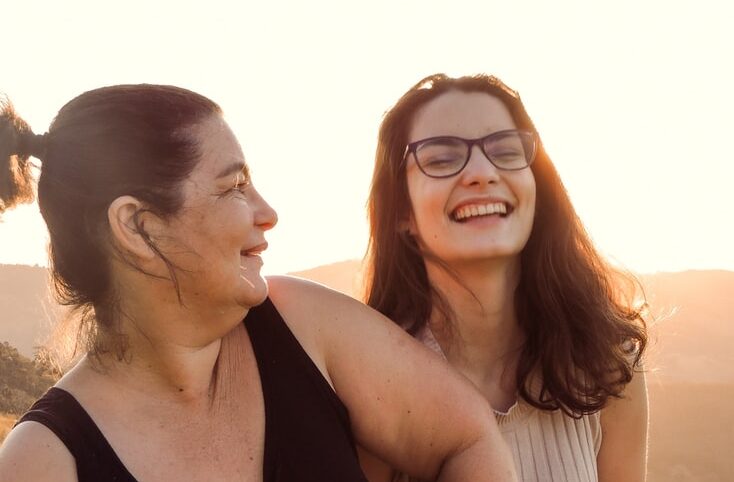Our two themes, Families and New Beginnings, and Health and Wellbeing, help us measure our impact, make clear decisions that shape our programs, and advocate for our vision of zero homelessness.
Families and New Beginnings
Everyone deserves another chance and the best start in life.
Long-term housing combined with targeted support services create real change for families. When we rapidly re-house families, children and young people experiencing homelessness, we limit additional trauma and give them the best chance to recover, rebuild and break the intergenerational cycle of disadvantage.
The increasing cost of living and ever shrinking rental markets are impacting more families than in previous years. Poverty and family violence continue to be constant pressures that push many women into the impossible position of raising a family without a stable home.
This year, Launch Housing assisted over 2,400 families which is 44% of all clients assisted (excluding Initial Assessment and Planning clients who are predominantly single).
The Families and New Beginnings impact area is supported by the generosity of:
- Bowness Family Foundation;
- Goldsmith Family Foundation;
- Kapscalu Rejenerative Fund, a sub-fund of Australian Communities
- The Brian M Davis Charitable Foundation;
- The Jack and Ethel Goldin Foundation;
- and generous individuals and families who would prefer to remain anonymous.
Program highlights
Viv’s Place
Family violence is highly prevalent in Victoria and across Australia. Between 2021-2022, 102,000 clients were assisted by a Specialist Homelessness Service in Victoria, 45% of whom experienced family and domestic violence.
There is currently a shortage of appropriate, safe and long-term housing for women and children escaping family violence. In addition to being exposed to the risk of homelessness, women and children often also face other challenges – mental ill-health, drug and alcohol-related issues, and interactions with the criminal justice system.
As the first of its kind in Australia, Viv’s Place, in Dandenong, offers families escaping domestic violence access to long-term housing and wraparound supports. Launch Housing designed and built Viv’s Place using a trauma-informed lens, opening its doors in July 2022, eight years after the idea was first conceived. It is now home to 60 women and up to 126 children.
At Viv’s Place, women are supported to connect with the broader community and services that help improve their overall health and wellbeing, and provide them with access to employment and financial advice so they can have increased independence and agency in their lives. The program also assists women to foster a healthy and stable family environment and support their children to engage in school to reach their full potential.
We are undertaking a developmental evaluation of Viv’s Place to ensure the program continues to meet the needs of residents, and to test our initial assumptions—an essential part of creating an Australian-first service model.
“The support groups (wouldn’t go out of my way to research and book something because I don’t have the time, but having these groups here in the building is great!)”
– Viv’s Place resident
Early findings from the evaluation show that most women felt Viv’s Place provides them a safe and stable home, a stark improvement from their previous accommodation. They also highlighted the importance of onsite support services, noting that it is unlikely they would access these themselves.
“The women are not only given somewhere for them to stay and somewhere to feel safe and secure, but somewhere that their children can thrive. Having supports here is really helpful for them. So they’re able to just come downstairs join in with a supported play group or join in with a job services provider. I think those small things are such huge wins for these families and something they may not have been able to do before. I think the fact that we can provide that here is just incredible.”
– Nadine, Program Manager at Viv’s Place
Through the evaluation process, the women observed that their children were also benefitting from the services offered by the Education Pathways Program (EPP) at Viv’s Place.
“It [Viv’s Place] relieves the stress of trying to find a home. I am so happy that we finally have stability. I am grateful that I can finally raise my children in a secure environment that we feel safe in.”
– Viv’s Place resident
An initial economic assessment of Viv’s Place by Urbis outlined that the program is expected to have significant beneficial impacts to families and communities as well as systems benefits to government. The report estimated a $49,170 annual benefit to families and communities driven by personal health and wellbeing gains and reduced family separation.
Further, benefit to government is estimated to total approximately $274,270 annually under similar assumptions generated from provision of critical housing, reduced healthcare system pressure from intimate partner violence and reduced cost of treating mental illness in community over acute care.
The unique and tailored design of Viv’s Place has already been recognised through several awards:
- Winner – Leading Housing Development Project Awards as both the VIC/TAS jurisdictional winner and the Australasia winner for the 2023 Australasian Housing Institute’s Brighter Future Awards
- Winner – Modernisation of a Built Form Development Award for the 2022 PowerHousing Australia Awards
- Shortlisted – 2023 Australian Institute of Architecture Awards.
- Finalist – Affordable Development for the 2022 Urban Development Institute of Australia’s Victorian Awards for Excellence
Viv’s Place was made possible by:
- Australian Nursing & Midwifery Federation, Victorian Branch
- The Ian Potter Foundation
- Robin and Mary Lou Friday & the Friday-Ferrell-Hudson-Maher Family
- Gandel Foundation
- Lord Mayor’s Charitable Foundation
- Regenerate
With generous support from:
- Grigg Family Fund, Kapscalu Rejenerative Fund, & Juno Fund, sub-funds of Australian Communities Foundation
- The William Angliss Charitable Fund
- The Pierce Armstrong Foundation
- Gill Family Foundation
- The Eric Burton Memorial Fund, a charitable fund account of Lord Mayor’s Charitable Foundation
- Rotary Melbourne
- and many other generous individuals and families who would prefer to remain anonymous.
Education Pathways Program
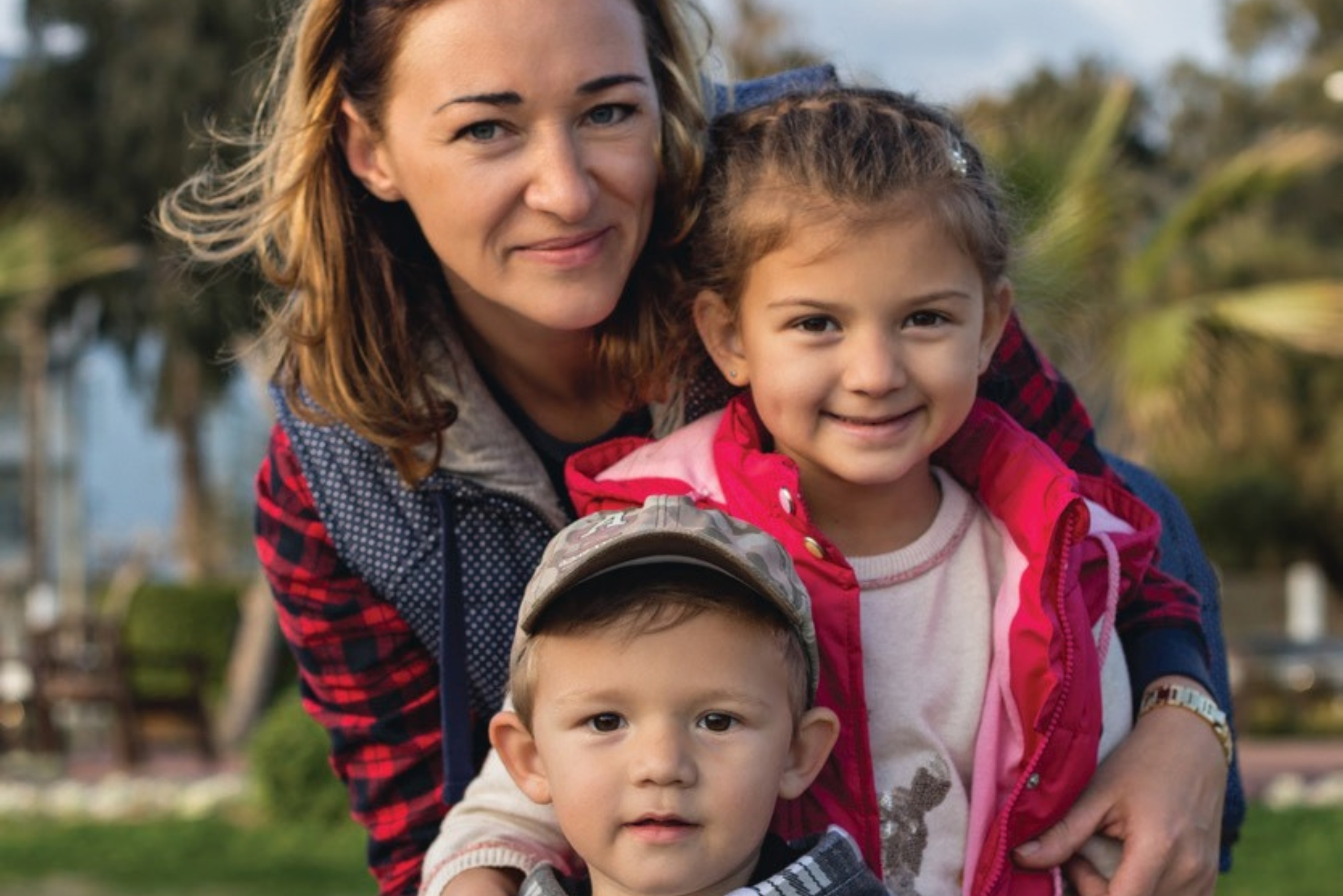
According to the 2021 census, children and young people make up a significant proportion of Victoria’s worsening homelessness crisis, a 26% increase between 2016 and 2021. A total of 6,798 children were estimated to be experiencing homelessness in the 2021 Census, accounting for 22% of the state’s overall homelessness numbers. More than 4,100 are children under the age of 12.
We know that when children experience the instability and trauma of homelessness, they are at a higher risk of poor educational outcomes. These children tend to fall through the gaps of the education system because of frequent relocation. Over the long-term, they are exposed to entrenched disadvantage and ongoing cycles of homelessness, which increases their risk of experiencing homelessness as an adult.
Education is critical to the prevention of homelessness and disadvantage. Early interventions can make a huge difference to children’s education and wellbeing outcomes, including housing stability during adulthood.
Our Education Pathways Program (EPP) supports kinder and primary school-aged children who have experienced homelessness to begin and/or continue with their education. This year, the program supported 135 children and completed 61 enrolments to school and early childhood education centres. The program worked with 25 schools and 21 early childhood education providers across Melbourne.
The Education Pathways Program expanded to Viv’s Place in 2022 to support children there to enrol and engage with their new schools and resolve learning gaps. EPP supported 17 families and 42 children at Viv’s Place.
Key highlights include:
- Breakfast Club: average of 251 breakfasts served per month to an average of 17 children per day
- Walking School Bus: average of 10 walking school bus days each month
- Homework Club: average of 5 children regularly attending each month
We surveyed the children supported by EPP at Viv’s Place to ensure their voices and experiences are being considered through the ongoing monitoring of the program. Nearly all the children who responded said they enjoyed living at Viv’s Place and that they felt safe in their apartment and the common play areas.
More than half of them indicated they felt safe at school, an area EPP is addressing directly with families and schools.
“I like the walk in the morning to school every day, I don’t want to take the bus”
– Child
EPP staff work closely with schools to help improve their understanding of homelessness and family violence, and how these issues impact children’s learning. This ensures that educators are better prepared to support children by providing a trauma informed environment. In line with this, in May 2023, EPP conducted capacity building sessions with two schools and a total of 49 staff.
Feedback from the participants showed:
- Improvement in understanding of homelessness – Nearly all attendees reported that the capacity building session had improved their understanding of homelessness to some extent and for over two-thirds (68%, n=32), it was a ‘major improvement’ or ‘a lot of improvement’.
- Participants were better equipped to support children – In terms of how to support students who are experiencing homelessness, more than half reported ‘major’ or ‘a lot’ of improvement from participating in the capacity building session.
- School staff have access to important resources – All participants who attended the capacity building session said they have more knowledge of the resources available to support students who are experiencing homelessness.
- Nearly all are now more confident to engage with parents of students who are experiencing homelessness.
- Participants want to know more about: support strategies in the classroom discussion (73%), taking a trauma informed approach (42%), and how trauma impacts brain development (31%).
The program also works with parents, providing hands-on practical support and helping to establish good relationships between educators and parents.
At our Viv’s Place Education Pathways Program, we have seen many success stories with the children finding confidence and joy in learning. One of the students at homework club initially refused to read his homework book. With the Speech Pathologist’s support, the student successfully read a full book and succeeded in completing the required homework. The student is now enjoying reading and happily reads to the facilitator.
The Education Pathways Program is made possible only through the generosity of donors and philanthropic funders:
- Fred J Cato Charitable Fund
- Goldsmith Family Foundation
- The Arthur Gordon Oldham Charitable Trust, managed by Equity Trustees
- The Gething-Sambrook Family Foundation, managed by Equity Trustees
- The Jack Brockhoff Foundation
- The Peter and Ann Robinson Foundation
- The Ross Trust
- donors to Families and New Beginnings, and
- generous individuals and families who would prefer to remain anonymous.
Education First Youth Foyers
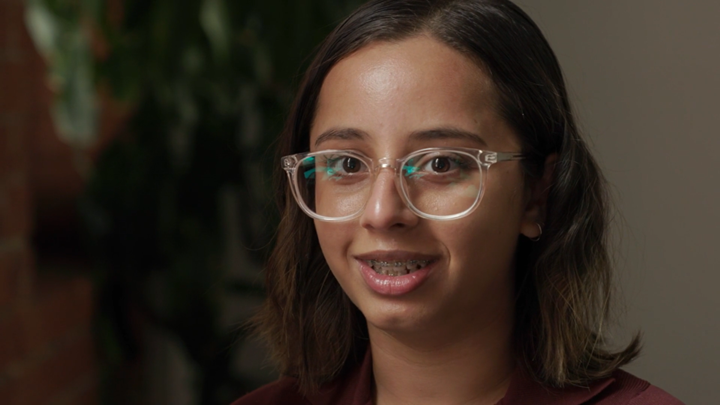
Both our Glen Waverley and Broadmeadows Education First Youth Foyers (EFYF) foster student potential and enable them to thrive independently. In 2023, we are celebrating the 10th anniversary of the Glen Waverley EFYF with our partners, the Brotherhood of St Laurence and Holmesglen TAFE.
All our EFYF students engage in education during their up to two-year residence, and many are also supported to find employment opportunities. The majority (71%) of EFYF students were employed at exit. This year, we supported 55 young people to transition out of the Foyers. Private rentals continue to be the preferred housing exit option for most students, followed closely by family reconciliation. The Foyers help ensure that our students can lead independent lives outside the homelessness system, helping break the cycle of disadvantage.
The EFYFs employed three former students this year, demonstrating our ongoing commitment to helping young people reach their full potential. This enabled them to also move into their own homes and continue to build healthy independence. Their employment reiterates Launch Housing’s commitment to bringing lived experience into our service delivery.
This year, we provided young people access to partnership and leadership opportunities. They were involved in co-designing services as active agents in their own environments. Young people accessed funding to lead civic participation projects and activities at the Foyers. Further, the EFYF Student Representative Councils provide an important mechanism to ensure students are helping to shape what happens at the EFYFs and in their communities.
Accommodation Options for Families
The Accommodation Options for Families program supported 130 families this year. The program provides housing-focused case management support to families in motels and other emergency accommodation to exit into more appropriate housing, including private rentals and social housing.
This year, 124 families exited the program. 52 secured private rentals, while 30 moved into social housing, and five families moved into a transitional property. Twenty-six families were in some form of insecure housing and the status of 11 families were unknown at the time of their exit.
Having a dedicated team who understand the unique challenges faced by families is helping to minimise the length of time families experience homelessness. The team also focus on ensuring that housing for families meets access requirements including proximity to services and schools. An understanding of what is happening for families at this point, helps inform the design of our other programs and new housing projects.
Health and Wellbeing
Housing is good health care. There is overwhelming evidence that poor health is both a cause and a consequence of homelessness. We also know that the longer a person experiences homelessness, the more serious the effects on their health and wellbeing.
That is why we believe that housing, and health care, and support, is key to ending homelessness. Many of our clients are typically disengaged from primary health care services and often do not access care to treat or manage the extent of their health issues prior to engaging with us. Recognising this as a critical gap in the system, we provide access to integrated health services at most of our Launch Housing sites, funded primarily through philanthropic partners and Homes Victoria. Each of our programs are pilots, supported by ongoing monitoring and evaluation.
Onsite health practitioner access is available at our Southbank Crisis Accommodation site and our women’s only crisis accommodation in East St Kilda, Elizabeth Street Common Ground supported residential housing, our residential Better Health and Housing Program delivered in partnership with St Vincent’s Hospital and Brotherhood of St Lawrence, and as part of our Housing First and assertive outreach programs.
This year, we directly supported over 500 people with their health and wellbeing needs, through medical emergency responses, assisted referrals to general practitioners and health professionals (dental, optometry and allied health), and ongoing chronic health management, particularly with mental health.
Early trends from these integrated programs demonstrate (see Program Highlights) improved use of community healthcare services which is reducing costs to, and pressures on the wider health sector by decreasing avoidable ambulance callouts and hospital admissions.
Wider research also supports these findings. A study of two St Vincent’s Hospital Melbourne homelessness health programs found that both programs achieved significant cost savings to the sector. The first program, which provided access to community nurses and primary health care drop-in services, resulted in a net cost decrease in emergency department and hospital admissions by $2,793 per client after 24 months.
The second program found that the provision of sub-acute care as part of an integrated program generated a net cost reduction of $3,827 per client after 12 months. After 24 months post-contact, this increased to a cost reduction of $11,621 per client.
Key initiatives within our Health and Wellbeing portfolio are generously supported by the DGP Foundation and individuals and families who wish to remain anonymous.
Program highlights
The Nursing Response at Southbank project
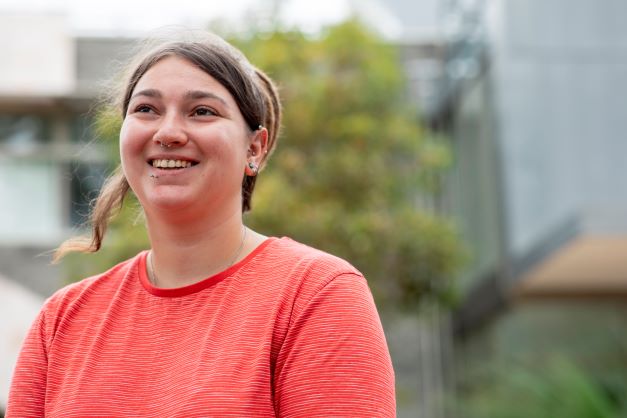
The nurses at our Southbank Crisis Accommodation site supported over 126 clients this year. Southbank has the most established and integrated onsite health services, offering therapeutic support and clinical nurses throughout the week. Nurses are available on-site between 8am to 8pm with clinic hours from 10am – 6pm.
Over the years, Southbank has seen an increase in the number of clients with high health needs being referred to our site as a result of having dedicated healthcare services onsite. While this has been beneficial to clients, it has put pressure on nurses and reinforces the need for additional and ongoing funding to meet demand.
A recent evaluation of the nurses’ support concluded that nurses have had a significant positive impact on clients with multiple and complex health needs and who are disengaged from mainstream health providers. Nurses use every client engagement as an opportunity to build trust and rapport which is critical to supporting improved health outcomes. Having nurses onsite also reduced ambulance call outs and presentations at emergency departments.
“[My] health overall is probably the best it’s been in the last three or four years … and my mental health is probably the best that’s been in about ten years. I wasn’t even aware of half the services they’ve been able to put me in contact with and they were invaluable. They help me plan and all that sort of stuff and you know just supporting me with everyday health and everything in helping managing stress and all that sort of stuff.”
– Southbank Project Client
Many of our clients present with complex histories of trauma and substance use, as well as significant mental and physical health needs. Our Southbank Crisis Accommodation is trialling a therapeutic Alcohol and Other Drugs (AOD) program alongside the nursing program to better support people with complex needs.
The AOD team at Southbank supported 174 clients this year. Our team use a harm reduction approach which is compassionate, non-judgemental and realistic. We also facilitate a secondary Needle & Syringe Program onsite and all our staff are trained in overdose prevention and response, supported by our multidisciplinary team including clinical nurses. Together these programs enable our clients to use safely on site while working on their AOD goals in a trauma informed and person-centred environment.
Our focus for next year is to engage an onsite mental health practitioner to work in partnership with our clinical nurses and AOD team to properly meet the needs of our clients.
This year, the Alcohol and Other Drugs (AOD) team supported a 43-year-old woman who presented as having complex medical issues associated to her substance use, as well as ongoing trauma associated with conflict amongst her family and separation from her young child. The team assisted her through strong advocacy surrounding her health needs and support requirements. This has resulted in her acceptance in a short-term detox stay which has transitioned into a long-term AOD recovery program. The client said this is the first time she has attempted long-term recovery options since she started using alcohol over 20 years ago. The client continues to work on her recovery in the long-term rehabilitation residential service with the goal of staying sober and reunifying with her son.
The Nursing Response at Southbank would not have been possible without the vision and generosity of the Shine On Foundation who have entirely funded the program since 2016.
Cornelia Program
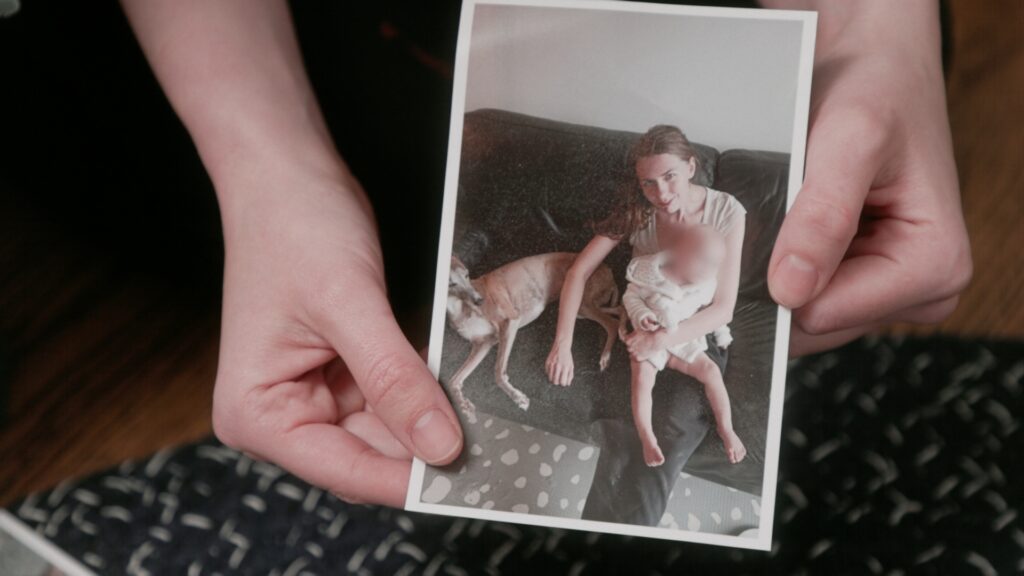
Pregnant women experiencing homelessness are more vulnerable as they face multiple challenges including reduced access to private rental, higher risk of family violence, less access to medical support, and poor access to nutritious food. These challenges can all have negative impacts on maternal and neonatal health. Collaborative responses between health and housing service providers can help produce better outcomes for a woman and her baby.
The Cornelia Program was established to support pregnant women presenting to homelessness services who required urgent, specialised, and longer-term health and housing supports that meet their complex challenges. The program is a partnership with Royal Women’s Hospital and HousingFirst, primarily funded by philanthropy. It is breaking the cycle of homelessness by providing housing and antenatal support to expectant and new mothers. This program demonstrates the importance and intersection of health and wellbeing.
This year, Cornelia supported 57 women and 30 babies, including 24 women from culturally and linguistically diverse backgrounds, and eight Aboriginal and Torres Strait Islander women.
The program supports women’s health needs as a priority and helps them build their independent living skills before finding them long-term housing. Affording private rental is difficult for many of these single mothers and community housing offers an alternative option.
The program has positively impacted the health of the women and babies, by supporting women to access pre- and post-natal care and to build strong mother-child connections in a safe environment, supported by a community. This year, Cornelia assisted 30 women to move into long-term secure and affordable housing that provides them a foundation to build a new life.
The Cornelia Program won two awards this year—the Urban Developer 2022 Excellence in Industry Leadership Award and the Victorian Protecting Children’s Award.
“I have not felt alone due to the continuous support from the Cornelia team as well as the super complementary information/education sessions. Being well informed is so important to me as a first-time mum and has helped me feel more in control of my pregnancy journey.”
– Cornelia Program Resident
Women and their babies in the Cornelia Program are generously supported by Paul Ramsay Foundation, Frank Montagnese Foundation, donors to Families and New Beginnings and generous individuals and families who would prefer to remain anonymous.
Elizabeth Street Common Ground
Launch Housing commenced a new, philanthropically funded, partnership with St Vincent’s Hospital in June 2022, with two nurses supporting 52 clients, 91% of the residents at Elizabeth Street Common Ground.
The program delivers strong health and housing outcomes for residents. The partnership with St Vincent’s Hospital is also helping to improve utilisation of the healthcare system by reducing unavoidable ambulance call outs and hospital admissions.
Long-term housing provided through Common Ground allows the onsite nurses to build relationships and trust with residents over time. These connections and support are enabling residents to improve their capability to independently manage chronic health conditions and advocate for their needs—things that had been challenging to achieve previously.
Residents have responded very positively to the nurses’ friendly, trustworthy, and practical approach.
The program also focuses on preventative care through health promotion activities. In October, the nurses hosted a Mental Health Day event with mindfulness and art therapy.
The nurses also hosted a successful Dental Health Day with stories of people, who hadn’t seen a dentist in many years, now living pain free and no longer embarrassed to smile. Health promotion activities like these lay the groundwork that encourage and support residents to access mainstream services.
Dental health care is one of the most challenging services for people experiencing homelessness to access and yet one of the most important health services for prevention and early detection of other significant health issues. Supporting access to dental health care is a priority for all our clients in the coming years.
“We had many returning patients… who were interested in pursuing both help for chronic illnesses and getting on top of new or acute issues. Preventative health has remained of interest to our patients…We have had a high level of interaction and follow up with tertiary health services for residents with complex chronic conditions and frequent presentations.”
– Elizabeth Street Common Ground Nurse
The Elizabeth Street Common Ground nursing program has been made possible through the generosity of the Brian & Virginia McNamee Foundation who have funded the program since its inception.
Better Health and Housing Program
Through integrated housing and health support, the Better Health and Housing Program (BHHP) supports housing, health and wellbeing outcomes for people experiencing chronic homelessness and co-occurring health conditions through a six-month residential service.
The program is a partnership with St Vincent’s Hospital Melbourne, Brotherhood of St. Laurence and Homes Victoria and commenced in August 2022. To date, we have supported 43 residents. Residents noted that the program offers them a secure base, encourages a social environment, and provides care that enables them to take challenging steps towards housing and health goals.
We are currently undertaking an evaluation, and as outlined below, early results show strong health and housing outcomes for residents.
Residents with planned exits from BHHP reported improvements in wellbeing, measured using the Personal Wellbeing Index (PWI-A) (International Wellbeing Group 2013). Upon entry, this group’s average score was 44.6 out of 100, which rose to 74 at exit, almost equalling the Australian mean score of 75.3. This is a significant outcome considering all residents had experienced chronic homelessness and were considered high acuity, with urgent and complex needs requiring immediate support.
Residents with both planned and unplanned exits took positive steps towards better managing their health. Upon exit, nearly all residents, with planned exits, were connected with a general practitioner (GP) (10 of 12 residents, 83%) – an improvement from entry where only seven out of 12 residents had links with a GP. Further, 74% of residents identified improvement in the management or resolution of one or more health issues, with 37% of clients noting improved management of mental health issues.
Early data on service utilisation from St Vincent’s Hospital (as at September 2023) shows that residents were four times less likely to present to the emergency department and three times less likely to require an acute hospital admission. Further analysis of this data will be undertaken, and findings shared in our next report.
These results show that providing integrated health care and housing support not only delivers better outcomes for our clients, but also increases capacity in the wider healthcare system by helping people before their conditions become an emergency.
Homelessness to a Home
The Homelessness to a Home (H2H) program supports people with a long history of rough sleeping to find good housing outcomes connected to ongoing support (see also Impact Measure two).
Our H2H program consortia consisted of Launch Housing, MIND, Uniting Vic/Tas, Victorian Aboriginal Community Services Association Ltd (VACSAL), cohealth and Bolton Clarke. Together, we worked with 25% or 449 of the total 1,800 H2H program participants state-wide.
Clients who were referred to H2H from other Launch Housing services were known to us for an average of eight years, indicating that they have been accessing homelessness services and experiencing chronic homelessness for close to a decade.
The longer a person experiences homelessness, the more serious the effects on their health and wellbeing. Access to primary health care is not only considered an effective way to address chronic mental and physical health issues but it is also a preventative measure to tertiary care. However, many clients were initially reluctant to seek care due to previous negative experiences.
Program nurses were able to develop trust and rapport with clients by providing continuity of care, flexibility, and material aid. Clients became open to having a nursing assessment and health care coordination as part of their support.
Analysis of program data showed that in 2022, of 382 clients who received support, 320 people (84%) had a dual diagnosis of Alcohol and Other Drugs (AOD) and mental health that impacted their life and housing situations. 199 people (52%) had tri-morbidity of AOD, mental health and chronic illness. As a result of clients accessing the program’s holistic and multi-disciplinary support services, their untreated, undiagnosed, and longstanding health issues were identified and addressed.
The program is also demonstrating significant housing outcomes for this group with 86% of our clients stably housed at Sep 2023. This is an especially noteworthy result, given the complex physical and mental health challenges the group has faced. The H2H approach demonstrates the importance and impact of ongoing health and housing and support services to end homelessness.
“Generally, it takes several months to engage with a new client. Workers need time to engage and understand the clients, clients need time to adjust to their new situation and feel safe and build trust with workers, and to think about what type of support suits them best.”
– Homelessness to a Home nurse
A small number of clients participating in the Homelessness to a Home program were generously supported by Lord Mayor’s Charitable Foundation to keep their housing when they were unable to continue paying rent due to participating in rehabilitation programs or similar. In normal circumstances, these people would have lost their housing, pushing them back into homelessness when they exited the program.
